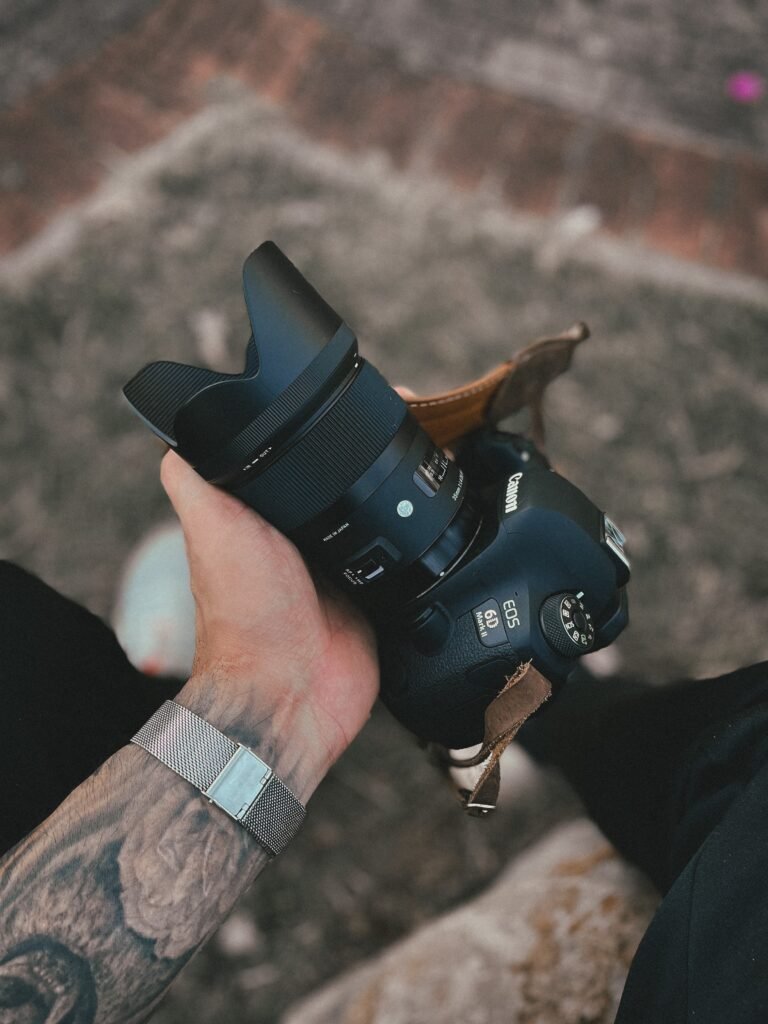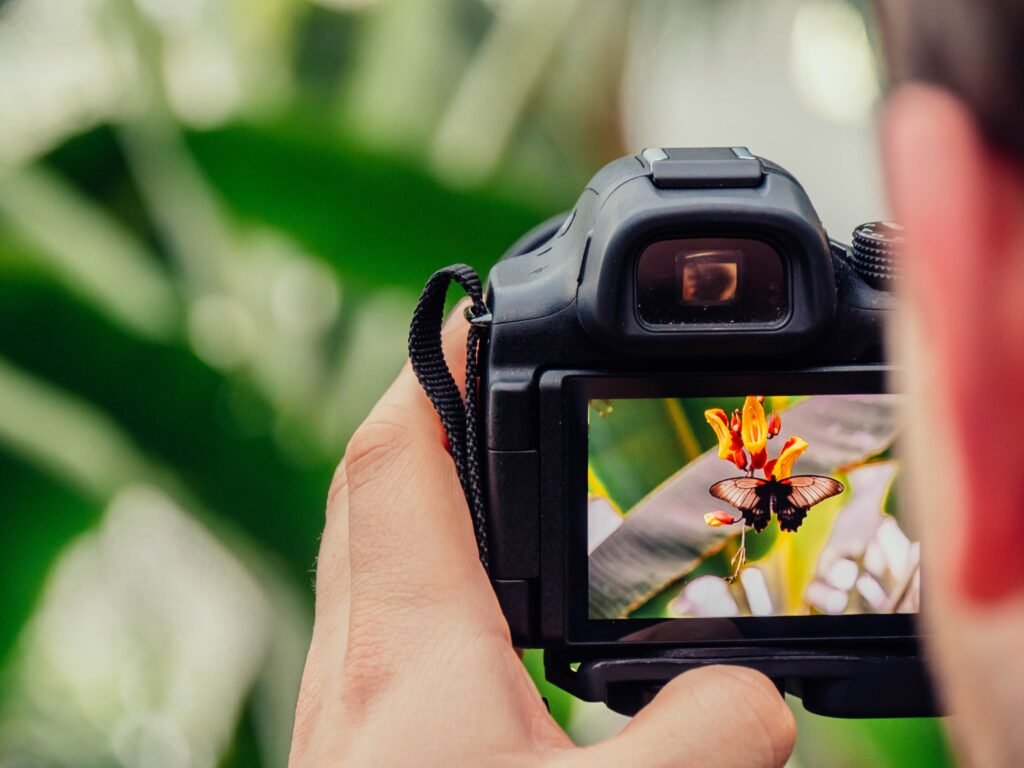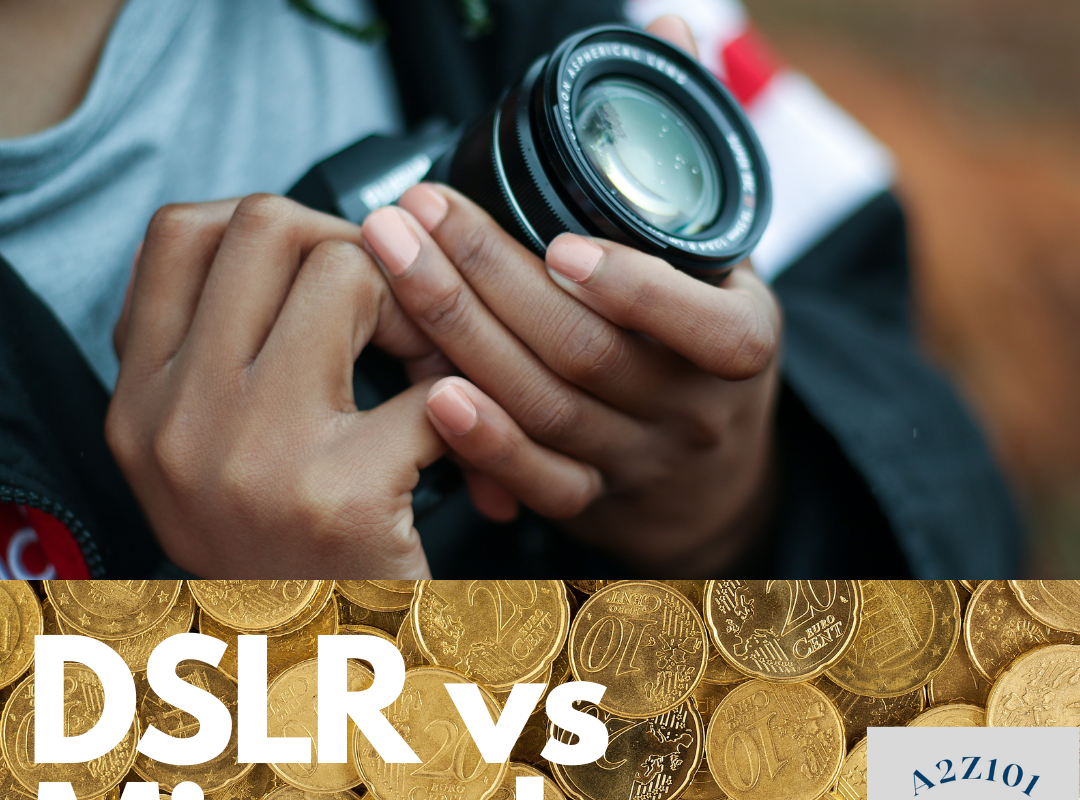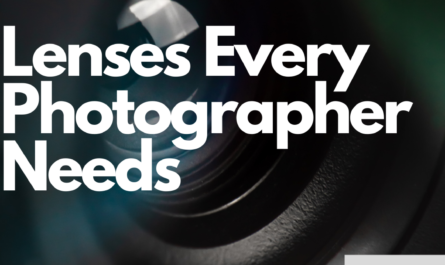The DSLR vs Mirrorless Camera debate is one of the most popular and controversial in mirrorless photography. Even as the industry is taking a major shift from DSLR to Mirrorless cameras, and Mirrorless cameras have become the new normal for most professionals, DSLRs aren’t done yet. Even though Mirrorless cameras have bigger benefits in today’s world for professionals, they don’t exactly win the DSLR vs Mirrorless Camera battle. If you’re reading this article, you’re probably not a professional, but you still might be wondering which works best for you. Let’s dive into the major differences between DSLR and Mirrorless camera systems.
#1: The Basic Difference
DSLRs and Mirrorless cameras have one big difference. As the name suggests Mirrorless cameras don’t have a mirror, while DSLRs do. Because they don’t have a mirror, Mirrorless cameras are usually smaller and more compact, while DSLRs are bigger and chunkier. Now, you might be wondering why DSLRs need mirrors in the first place. When you look into the viewfinder, the image you would see in a DSLR would be the actual image you would see in real life, reflected from the mirror in the camera. However, in a mirrorless camera, you see what the camera actually picks up, i.e., how the light is placed on the camera’s sensor. Which one you prefer depends largely on personal preference, but its easier to control settings on a Mirrorless camera, just because you can see what your photo will look like. A lot of the differences come down to personal preference, some might prefer the bigger body and added weight of a DSLR (me included), which might be beneficial for some types of photography. Many other photographers like the compactness and lightweight factor of a Mirrorless system. Whichever one you choose would come down to what you are looking for, and your budget.

#2: Battery Life
You can’t talk about any cameras without taking about battery life. Running out of battery when on a trip, and that feeling of missing some incredible shots always hurts. DSLR camera systems tend to do better on battery then Mirrorless systems. There are two main reasons that DSLR cameras have better battery life, the first being a bigger size. Because DSLR cameras are usually bigger than mirrorless cameras, they usually have more room for batteries, and a bigger battery automatically translates to better batter life. The second major reason that DSLR’s usually have better battery life us because they don’t have as many electronic components running permanently as compared to Mirrorless systems. The electronic viewfinders take up a lot of batter life, which might be a reason you want a mirror in your camera. Battery life doesn’t matter as much as you think it does though. Because both DSLR and Mirrorless cameras tend to have interchangeable batteries, you can just switch them out. That’s why I always recommend buying and carrying multiple batteries. Some might consider the better battery life and the hassle of having to carry more batteries for a Mirrorless camera as an easy win for DSLRs, but it comes down to personal preference.
#3: Autofocus
This is one of the most controversial topics of the Mirrorless vs DSLR debate and it largely comes down to which exact cameras you are considering. In the past, DSLRs had a major win over Mirrorless cameras, because they can’t use the same AF techniques that DSLRs use. However, in today’s world, in a lot of the more professional cameras, AF speeds are the same. This will differ from camera to camera though, and if you are on an extreme budget, a DSLR is probably your best bet. In the professional camera market however, in today’s world, Mirrorless cameras now have an edge over DSLRs. Not over the AF speeds but being able to focus anywhere on the frame, DSLRs can only focus on more central parts of the frame, and often have trouble focusing on the edges. However, most photographers, especially at the beginner level, won’t have to focus on the extreme edges of the frame. Some might argue that DSLR AF is slightly faster still, and the market is pretty divided, but you can’t go wrong with one over the other.
#4: Viewfinders
This is another topic that depends largely on personal preference. Electronic Viewfinders in mirrorless cameras used to be very poor in the past. However, in today’s world, with higher resolution panels, there isn’t as much difference as there used to be. You need to remember though, and Electronic Viewfinders will experience slight amounts of lag, while Optical View Finders will help you see the image in real time. Therefore, a lot of Sports and Action photographers continue to use DSLR cameras. Electronic Viewfinders however, as earlier said, show you exactly what the camera see’s which can be great for a lot of more experienced photographers that want to be able to tweak their settings in real time. However, a lot of the exact image parameters will depend on the panel that the Viewfinder is using, and it isn’t always ideal. Many photographers still prefer Optical Viewfinders for there simplicity and practicality. I personally usually recommend beginners to go with DSLRs because Optical Viewfinders are easier to use. And they won’t be confused because of settings and can slowly learn how to use their camera to there need. However, if you are a wizard at using all the Manual settings, you can’t go wrong with either model, depending on your preferences.

#5: Video
Mirrorless Cameras usually beat DSLRs when it comes to video. However, this is more for higher end Mirrorless Cameras. Both systems can usually do a pretty decent job of capturing video, but systems like Canons R3 or R5 or Sony’s A1 usually beat out other DSLR counterparts in similar price ranges. Again, this depends on the level of video you are shooting, and for most beginner or intermediate photographers, either will work absolutely fine.
Conclusion:
The decision of Mirrorless vs DSLR doesn’t have to be as hard as you think it does. It all comes down to what you want for you camera, and whether you prefer a bigger frame, more battery life, and possible better autofocus when compared to a smaller body and usually better video. The main decision boils down to you, but we assure you that you can’t go wrong with any. Always remember, the best camera is the camera that you have, so try getting the camera that you know you can buy, and keep on clicking away!





Best view i have ever seen !
Best view i have ever seen !